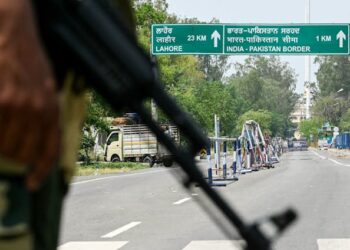Manjula Datta O’Connor is a clinical psychiatrist and chair of the Royal Australian and New Zealand College of Psychiatrists Family Violence Psychiatry Network. She has a particular interest in the mental health experiences of migrant women affected by family violence. She has been supporting women in her clinical practice for the past three decades.
Her new book, Daughters of Durga, draws on her research and clinical experience. It introduces readers to the complexities of family violence as experienced by South Asian migrant women in Australia, with a primary focus on Indian women.
Daughters of Durga unpacks the historical context of gender roles in Indian society under the Manusmriti laws. The Manusmriti, India’s ancient legal text, sets out laws, rights, duties, virtues and conduct. Written during the first century AD, it redefined Indian women. Once strong and fearless, they were recharacterised as dependent, submissive creatures. This ideal of women as submissive has persisted throughout India’s history, although to varying degrees.
Manusmriti was written by the highest caste for the highest caste. British colonisation introduced several legal reforms, including the universal application of Mansumriti to all castes. Originally intended to preserve the purity of the highest caste, Manusmriti became a rigid law that undermined gender equality for all Indian women.
Daughters of Durga critically examines the influence of social change over time on women’s inferior status. It describes how women of India organised themselves to resist the effects of British colonial rule. Datta O’Connor particularly draws on the experiences of educated women who have sought equality in their relationships and better opportunities for their families in Australia.
The book sets the scene by describing the lives of women in India and those who migrate to Australia. After the United Kingdom, Australia is the country with the largest population of Indian migrants, who currently make up 2.8% of Australia’s total population. Indians also make up around 15% of Australia’s international university student population and around 20% of Australia’s skilled migrant visa program.
Indian women, men and families therefore form a significant part of Australia’s multicultural population. It is critical for Australia to better understand the experiences of Indian women who migrate to Australia.
Datta O’Connor unpacks the cultural context of dowries – the amount of money or assets expected to be brought into a marriage by an Indian bride. She also examines the underlying assumptions that make dowries a potential tool of ongoing abuse.
In Indian culture, daughters are valued less than sons. Parents are likely to achieve significant financial gain from a son’s marriage, whereas the parents of a daughter start saving during her childhood to be able to afford her wedding and marriage. Daughters of Durga describes how women’s families are often solely responsible for wedding costs, including presents, garments, jewellery, and the different phases of the wedding ceremony and celebration.
Datta O’Connor notes that the families of many of the women she sees in her clinical practice acquired significant debts through this process. She helps the reader understand the complex nature of Indian marriages and the financial expectations placed on the bride and the bride’s family during (and often well beyond) the wedding procedures. Contributing factors include India’s patriarchal society and the reinforcement of gender stereotypes.
Dowries remain a common practice in Indian marriages, but the coercion of women and their families to make repeated dowry payments to the groom or his family after the wedding has been recognised as a form of family violence in Australia.
While family violence affects a large number of Indian women, Datta O’Connor reminds the reader that many grooms and their families do not engage in dowry-related abuse. Daughters of Durga criticises the patriarchal system that enables men’s violence against women, but it also describes men who are “benevolent patriarchs” – in other words, men who may be the final decision-makers in family matters, but do so without violence and coercion.
Many of the experiences described by Datta O’Connor are universal for those affected by family violence. As I have observed in my own research for over a decade, coercive control, financial abuse, and the negative impact of status incompatibility are common issues.
Throughout the book, Datta O’Connor investigates the status of women about to be married to an arranged partner. Modernisation has generated greater access to education for women in India. Today’s Indian women are better educated and wealthier than their mothers and grandmothers. Families increasingly invest in the education of their daughter to increase her desirability as a potential wife.
Many Indian women thus complete university degrees that set them up with future career and earning opportunities. Yet as soon as a woman is married, her potential career is traded for her role as a “good” wife and mother. For many Indian women, this means being subordinate to their husbands and in-laws and giving birth to at least one son – because sons promise prosperity, while daughters are a financial burden.
Daughters of Durga illustrates how increasing a woman’s status through education also increases her risk of family violence. Many men – Indian and otherwise – continue to feel threatened by highly educated women with career prospects, particularly where these may exceed their own.
Educated women in India have a chance at gender equality in theory. But in practice a woman may still find herself trapped in a patriarchal relationship that reinforces her inferiority.
The reinforcement of societal values that regard daughters as worth less than sons harms the mental wellbeing of the whole family. Again, this is not restricted to the Indian community: Datta O’Connor’s findings consider mental health costs associated with family violence more broadly.
Australia’s hyper-masculine culture has contributed to men’s mental health problems, including staggeringly high suicide rates among Australian men. Daughters of Durga empathetically explores how expectations of what it means to be a “real man” in Indian society similarly affect men’s mental well-being and the functioning of their relationships.
Social pressure to be the dominating head of the family has contributed to the deteriorating mental health of modern Indian men who seek equal relationships with a female partner. So long as the culture promotes gender inequality, Indian men who try to break out of the “man box” (which prescribes male dominance, strength and power within intimate relationships) will be reminded that they have failed as men.
This comes on top of gender inequality’s obvious cost to women. Family violence has detrimental short-term and long-term effects on women’s mental health. Datta O’Connor’s clinical practice and research highlight the devastating consequences of family violence for Indian women living in Australia.
Like many other advocates, Datta O’Connor argues that addressing men’s violence against women at its roots – by improving social attitudes to gender equality – would reduce the costs associated with the recovery needs of women and children, and mental health support for men. This would not only improve individual wellbeing, but promote healthy, respectful and safe relationships.
Daughters of Durga makes a significant contribution to our understanding of domestic and family violence in multicultural Australia. It also adds to current conversations around educating the community and service providers about women’s experiences of non-physical forms of abuse, such as coercive control.
Datta O’Connor clearly situates the culturally specific experiences of South Asian women experiencing family violence within a broader context of universal, cross-cultural experiences. She highlights the importance of a nuanced understanding of family violence that considers culture, migration and gender.
She concludes by reimagining the Manusmriti in a way that reflects gender equality and freedom from individual and structural violence for women.
Indian women have made significant progress towards empowerment and equality in recent decades. Until men join them on this journey, women’s increasingly elevated status through education will remain a risk factor for family violence.
Indian societal expectations need to shift away from women being “good” and obedient wives and mothers in order to prevent men’s violence against them. Men need to be expected to support gender equality by contributing to housework and childcare, and by supporting women’s career opportunities and financial independence.
To achieve this, Datta O’Connor concludes, we need to educate boys and engage men as allies in the fight against family violence – and violence against women more broadly.











